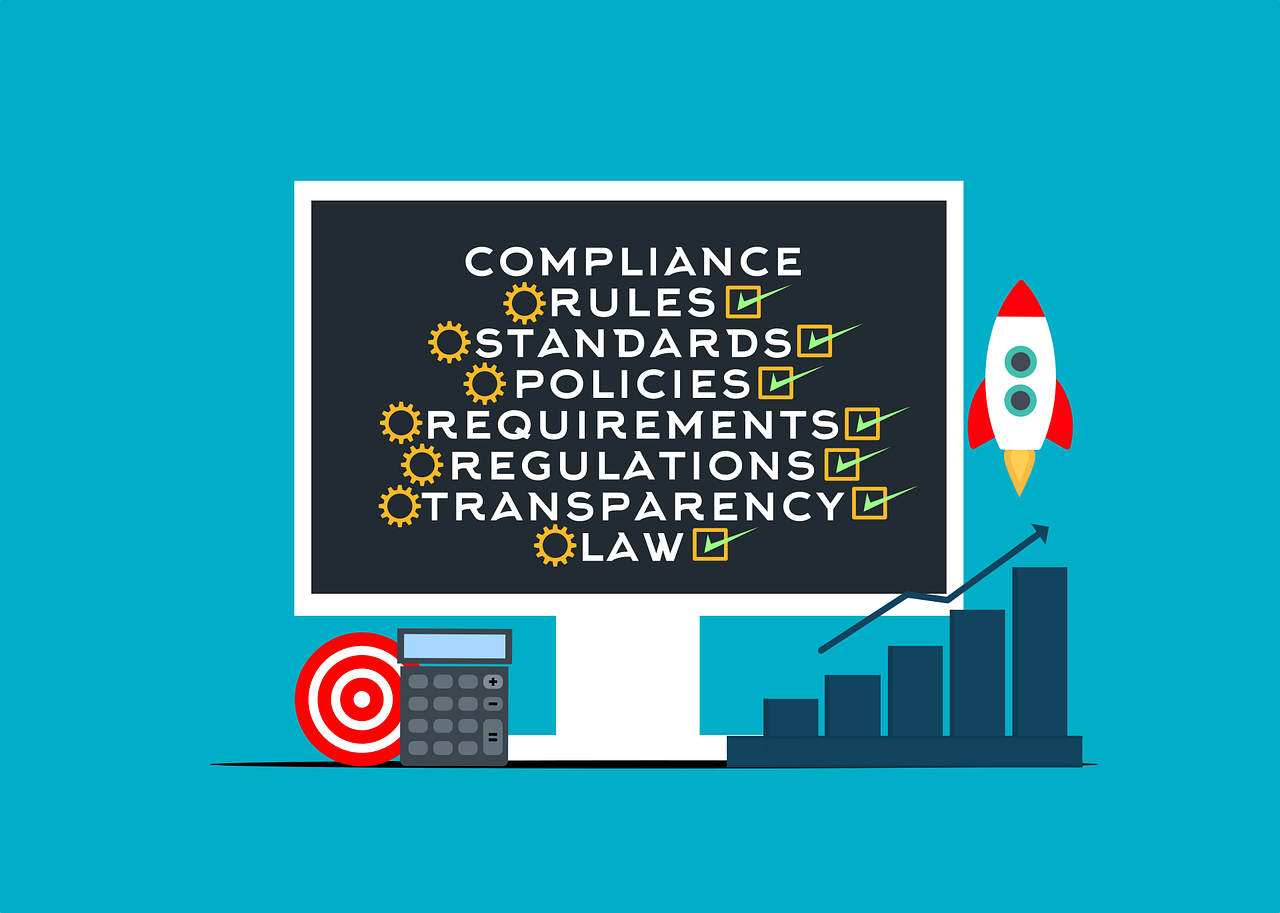In the dynamic world of social media, maintaining compliance can pose unique challenges for consulting firms. As these firms strive to establish a reputable online presence, they must navigate numerous legal requirements and regulations to ensure their social media activities align with best practices. From the use of testimonials and endorsements to the disclosure of material connections, consulting firms must exercise caution to avoid potential legal pitfalls. This article provides a comprehensive overview of social media claims compliance for consulting firms, discussing key considerations and offering practical guidance to help these businesses effectively manage their online presence while remaining compliant with the law.
Introduction
In today’s digital age, social media has become an integral part of business operations and marketing strategies. However, consulting firms must navigate the complex world of social media compliance to mitigate legal risks and protect their reputation. This article will explore the importance of social media compliance for consulting firms and provide guidance on understanding and implementing compliance strategies. By following these guidelines, consulting firms can ensure that their social media activities align with applicable laws and regulations, minimizing the risk of legal claims and reputational damage.
Importance of Social Media Compliance for Consulting Firms
Social media compliance is crucial for consulting firms for several reasons. First and foremost, compliance with social media laws and regulations helps protect the reputation and integrity of the firm. By adhering to legal requirements, consulting firms demonstrate their commitment to ethical practices and gain the trust of clients and stakeholders.
Secondly, non-compliance with social media laws can result in severe legal consequences, such as fines, penalties, and lawsuits. Consulting firms that fail to comply with advertising laws, privacy and data protection regulations, intellectual property rights, and employment laws may find themselves embroiled in legal disputes that can be costly and time-consuming.
Additionally, the nature of social media makes it easy for information to spread quickly and to a wide audience. Consulting firms must be vigilant in ensuring that their social media activities do not violate any legal obligations, as any misstep can harm their brand and professional standing.
Considering these factors, consulting firms must prioritize social media compliance as an essential aspect of their overall legal and risk management strategy.

1. Understanding Social Media Compliance
1.1 Definition of social media compliance
Social media compliance refers to the adherence to laws, regulations, and internal policies when using social media platforms. It encompasses various legal considerations, such as advertising, privacy, data protection, intellectual property, and employment laws. Consulting firms must understand and ensure compliance with these rules to mitigate legal risks associated with their social media activities.
1.2 Why consulting firms need to focus on social media compliance
Consulting firms need to focus on social media compliance to protect their reputation, avoid legal consequences, and maintain ethical business practices. Social media platforms present unique challenges and risks, particularly in terms of data privacy, advertising practices, and promotion. By prioritizing social media compliance, consulting firms demonstrate their commitment to operating within legal boundaries and safeguarding their clients’ interests.
2. Legal Considerations for Consulting Firms on Social Media
2.1 Compliance with advertising laws
Consulting firms engaging in advertising or promotional activities on social media must comply with advertising laws and regulations. These laws govern the accuracy and honesty of advertisements, disclosure of affiliations and relationships, fair competition practices, and the use of customer testimonials and endorsements. Consulting firms should ensure that their social media advertisements are truthful, clearly disclose any affiliations, and comply with fair competition laws.
2.2 Privacy and data protection laws
Privacy and data protection laws play a significant role in social media compliance. Consulting firms must obtain proper consent when collecting and using personal data, implement privacy settings and controls to protect user information, and handle data breaches promptly and transparently. Compliance with these laws is essential to protect the privacy rights of clients and stakeholders and avoid legal consequences.
2.3 Intellectual property rights
Consulting firms must respect intellectual property rights when using social media platforms. This includes respecting copyrights, trademarks, and patents held by others, as well as monitoring and addressing any infringement issues. Failure to comply with intellectual property laws can result in legal disputes and damage the reputation of the consulting firm.
2.4 Employment laws
Social media usage by employees can raise employment law issues for consulting firms. Firms must establish clear policies regarding employee use of social media and address the protection of confidential information and trade secrets. Furthermore, consulting firms must be prepared to address instances of employee misconduct on social media, ensuring that appropriate disciplinary measures are in place.
By understanding and adhering to these legal considerations, consulting firms can safeguard their interests and minimize the risk of legal claims arising from their social media activities.

3. Developing a Social Media Compliance Strategy
To ensure social media compliance, consulting firms should develop a comprehensive strategy that addresses the various legal considerations. The following steps can guide consulting firms in the process of developing an effective social media compliance strategy.
3.1 Identifying applicable laws and regulations
Consulting firms must first identify the laws and regulations that are relevant to their social media activities. This includes understanding advertising laws, privacy and data protection regulations, intellectual property rights, and employment laws. By gaining a clear understanding of the legal landscape, consulting firms can tailor their compliance strategy accordingly.
3.2 Creating a social media policy
A well-crafted social media policy is crucial for ensuring compliance. The policy should outline expectations for employee behavior on social media, provide guidance on the proper use of social media platforms, and address legal considerations such as data privacy, intellectual property rights, and fair competition practices. The policy should be regularly reviewed and updated to reflect changes in laws and regulations.
3.3 Monitoring social media activities
Consulting firms should implement monitoring mechanisms to ensure compliance with social media policies and legal requirements. Regularly monitoring social media platforms can help detect any potential violations and take prompt action to address them.
3.4 Training employees on compliance
Employee training is essential to raise awareness about social media compliance and ensure that all employees understand their responsibilities. Training programs should cover topics such as proper use of social media platforms, legal considerations, and the consequences of non-compliance. By providing comprehensive training, consulting firms can empower employees to make informed decisions when engaging with social media.
3.5 Establishing disciplinary measures
Consulting firms should establish clear disciplinary measures for instances of non-compliance with social media policies and applicable laws. These measures should be communicated to all employees and enforced consistently. By establishing consequences for non-compliance, consulting firms can enforce accountability and deter inappropriate behavior on social media platforms.
4. Advertising and Promotion on Social Media Platforms
4.1 Ensuring accuracy and honesty in advertising
When advertising on social media platforms, consulting firms must ensure that their advertisements are accurate and honest. Claims made in advertisements should be substantiated, and any potential risks or limitations should be clearly disclosed to the audience. Misleading or false advertising can lead to legal claims and damage the reputation of the consulting firm.
4.2 Disclosing affiliations and relationships
Consulting firms must disclose any affiliations or relationships that may influence the credibility or objectivity of their social media content. This includes disclosing any financial or personal interests that may impact the firm’s recommendations or endorsements. Transparent disclosures help maintain the trust of the audience and ensure compliance with advertising laws.
4.3 Maintaining fair competition
Consulting firms must adhere to fair competition practices when engaging in social media advertising and promotion. This includes refraining from engaging in deceptive practices, such as spreading false information about competitors or using unfair tactics to gain a competitive advantage. By maintaining fair competition, consulting firms uphold their professional integrity and avoid legal consequences.
4.4 Handling customer testimonials and endorsements
If consulting firms use customer testimonials or endorsements on social media, they must ensure compliance with advertising laws. Testimonials should be genuine and based on actual experiences, and any material connections between the firm and those providing testimonials should be clearly disclosed. Consulting firms must avoid misleading or false testimonials, as these can result in legal claims and reputational damage.
5. Protecting Privacy and Data on Social Media
5.1 Implementing privacy settings and controls
Consulting firms should implement privacy settings and controls on social media platforms to protect user information. This includes utilizing privacy features offered by the social media platforms and ensuring that appropriate access controls are in place. By implementing these measures, consulting firms can reduce the risk of unauthorized access to user data.
5.2 Obtaining proper consent for collecting data
When collecting personal data through social media platforms, consulting firms must obtain proper consent from individuals in compliance with applicable privacy laws. Consent should be informed, specific, and freely given. Consulting firms should also clearly communicate how the collected data will be used and ensure that individuals have the option to withdraw their consent at any time.
5.3 Safeguarding confidential information
Consulting firms must take appropriate measures to safeguard confidential information shared on social media platforms. This includes restricting access to sensitive information, implementing encryption and other security measures, and regularly monitoring for potential data breaches. By protecting confidential information, consulting firms can maintain the trust of their clients and prevent legal claims.
5.4 Responding to data breaches
In the event of a data breach on social media platforms, consulting firms should have a clear plan in place to respond promptly and effectively. This includes notifying affected individuals, cooperating with relevant authorities, conducting an investigation into the breach, and taking steps to mitigate the impact. A swift response to data breaches demonstrates the consulting firm’s commitment to data protection and can minimize legal and reputational damage.
6. Intellectual Property Rights and Social Media
6.1 Respecting copyrights, trademarks, and patents
Consulting firms must respect the intellectual property rights of others when using social media platforms. This includes refraining from using copyrighted materials, trademarks, or patented inventions without proper authorization. Consulting firms should also ensure that their own intellectual property rights are protected by monitoring unauthorized use and taking appropriate legal action when necessary.
6.2 Monitoring and addressing infringement issues
Constant monitoring of social media platforms is crucial for identifying and addressing any potential infringement issues. Consulting firms should promptly address any instances of copyright, trademark, or patent infringement through takedown requests or legal action, if necessary. By actively protecting their intellectual property rights, consulting firms can prevent their reputation and business interests from being compromised.
6.3 Handling content ownership and permissions
When sharing content on social media platforms, consulting firms must ensure that they have the necessary ownership or permissions to post the content. This includes obtaining proper licenses for using third-party content and respecting the intellectual property rights of others. By handling content ownership and permissions diligently, consulting firms can avoid legal disputes and maintain the trust of their audience.

7. Social Media and Employment Laws
7.1 Employee use of social media
Consulting firms should establish clear policies regarding employee use of social media to mitigate employment law risks. These policies should outline expectations for professional conduct, including guidelines for employee interactions on social media platforms. By providing clear guidance, consulting firms can minimize the risk of employee misconduct and protect their reputation.
7.2 Protecting confidential information and trade secrets
Consulting firms must take steps to protect confidential information and trade secrets from being disclosed on social media platforms. This can include implementing confidentiality agreements, restricting access to sensitive information, and educating employees about the importance of confidentiality. By safeguarding confidential information, consulting firms can uphold their contractual obligations and protect their competitive advantage.
7.3 Addressing employee misconduct on social media
Consulting firms should be prepared to address instances of employee misconduct on social media promptly. This may involve disciplinary action, including warnings, suspensions, or termination, depending on the severity of the misconduct. By addressing employee misconduct, consulting firms can maintain a professional reputation and foster a positive work environment.
FAQs about Social Media Claims Compliance for Consulting Firms
FAQ 1: What is social media claims compliance?
Social media claims compliance refers to the adherence to laws, regulations, and internal policies when using social media platforms. It involves ensuring compliance with advertising laws, privacy and data protection regulations, intellectual property rights, and employment laws to mitigate legal risks associated with social media activities.
FAQ 2: Why is social media compliance important for consulting firms?
Social media compliance is important for consulting firms to protect their reputation, avoid legal consequences, and maintain ethical business practices. Non-compliance can result in legal claims, fines, and damage to the firm’s professional standing.
FAQ 3: How can consulting firms develop a social media compliance strategy?
Consulting firms can develop a social media compliance strategy by first identifying applicable laws and regulations. They should then create a comprehensive social media policy, implement monitoring mechanisms, provide employee training on compliance, and establish disciplinary measures for non-compliance.
FAQ 4: What legal considerations should consulting firms keep in mind on social media?
Consulting firms should consider compliance with advertising laws, privacy and data protection regulations, intellectual property rights, and employment laws on social media. These considerations include accuracy in advertising, disclosure of affiliations, respect for intellectual property rights, protection of confidential information, and adherence to employment law obligations.
FAQ 5: What are the consequences of non-compliance on social media?
Non-compliance with social media laws can result in legal consequences, such as fines, penalties, and lawsuits. It can also damage the reputation and credibility of the consulting firm, leading to client loss and potential business impact. Importantly, non-compliance can erode trust and credibility, which are vital for consulting firms in establishing long-term client relationships.
In conclusion, social media compliance is essential for consulting firms to protect their reputation, ensure legal compliance, and maintain ethical business practices. By understanding the legal considerations, developing a comprehensive compliance strategy, and implementing appropriate policies and safeguards, consulting firms can minimize legal risks associated with social media activities. Regular monitoring, employee training, and clear disciplinary measures are crucial components of an effective compliance strategy. By prioritizing social media compliance, consulting firms can optimize their online presence and mitigate risks associated with the use of social media platforms.


























